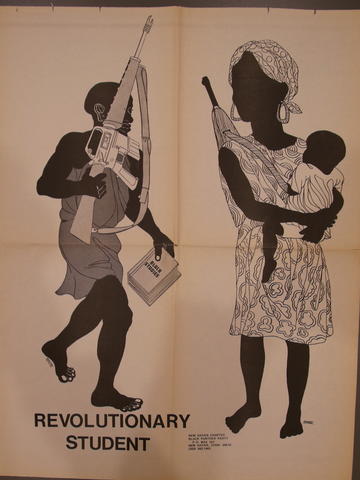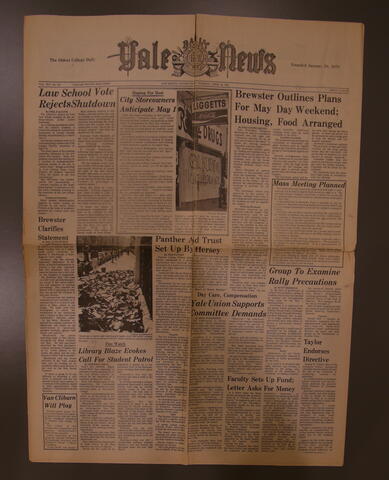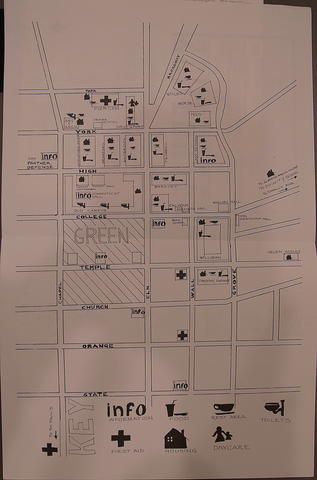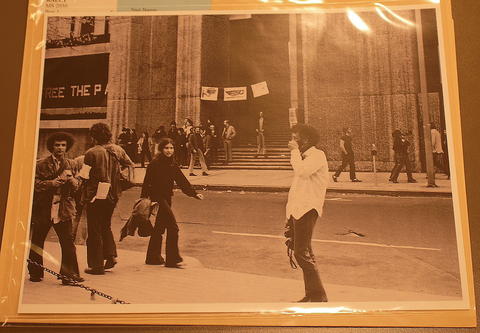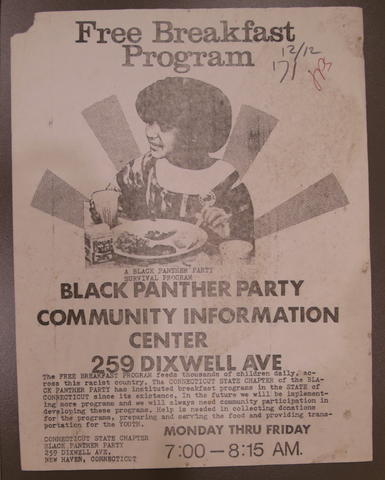Panthers & Lipstick: May Day in New Haven
This session covered the events surrounding the New Haven Black Panther Trials, including May Day at Yale (1970), as well as the activities of the Black Workshop at the Yale School of Architecture (1968-69). Material included photographs and ephemera from the May Day Rally and Yale Collection and the Thomas Strong Photographs Collection at Manuscripts and Archives, Sterling Memorial Library, as well as courtroom sketches by Robert Templeton, documents from the Catherine Roraback Collection of Ericka Huggins Papers, and Black Panther-related broadsides from the Beinecke Rare Book and Manuscript Library.
This graphic pairs the iconic “mother and child” figure which often appears in BPP visual imagery with the so-called “revolutionary student,” who carries a gun and a book with the title Black Studies. Both figures are signed by Emory Douglas, Minister of Culture for the BPP.
This issue of the Yale Daily News demonstrates the extent to which Yale University was involved in the activities surrounding May Day and the New Haven Black Panther Trials. On April 23rd, then-Yale President Kingman Brewster announced to the faculty that academic “expectations” would be suspended for the rest of the semester.
This map of downtown New Haven was distributed as an insert in the May Day issue of Strike Newspaper. It shows the tremendous organization undertaken to prepare for the rally, as well as the use of Yale facilities and colleges to house, feed, and provide medical care to protesters.
This photograph shows the exterior of the Art and Architecture Building at Yale on May Day. Signs hanging above the steps correspond to the key on the May Day map, indicating that demonstrators can find housing, toilets, and a place to rest inside. The large banner on the building, to the left of the stairs (partially shown in this image), reads “Free the Panthers!”
This flyer publicizes the Free Breakfast Program of the New Haven chapter of the Black Panther Party. These and other “Survival Programs” were run by chapters all over the country, focusing on concretely helping black communities meet their basic needs in order to facilitate self-determination.
